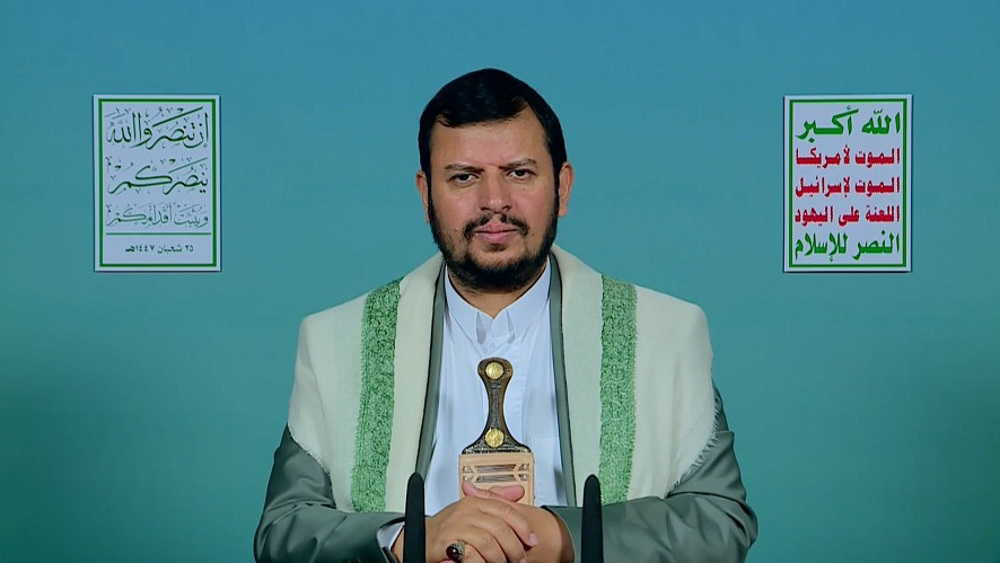UN warns about worsening humanitarian situation in Yemen’s Hudaydah
The United Nations has warned about the rapidly worsening humanitarian situation in Yemen’s blockaded Hudaydah as fighting between the country’s army troops, backed by fighters from the Houthi Ansarullah movement, and militiamen loyal to former president Abd Rabbuh Mansur Hadi resumed in the port city following the collapse of the latest round of UN-brokered peace talks.
“The situation has deteriorated dramatically in the past few days. Families are absolutely terrified by the bombardment, shelling and airstrikes,” said the UN humanitarian coordinator, Lise Grande, in a statement on Thursday, as the lives of 300,000 inhabitants hang in the balance in the port city.
The fresh UN-backed peace talks were scheduled to be held in the Swiss city of Geneva late last month, but they were aborted after the world body failed to meet conditions set by Yemen’s Houthis, including transfer of wounded people to hospital for proper treatment and guarantees on the safety of Houthi delegation. Ansarullah later accused the Saudis of planning to strand the delegation in Djibouti, where their plane was to make a stop en route to Geneva.
The two sides held their last UN-sponsored negotiations in Kuwait in 2016 in a bid to hammer out a “power-sharing” deal but they fell apart after the Saudi-backed side left the venue.
Backed by Saudi-led airstrikes, Emirati forces and militants loyal to Hadi launched the Hudaydah offensive on June 13 despite international warnings that it would compound the impoverished nation’s humanitarian crisis as the country traditionally imported 90 percent of its food, mainly through the port.
The coalition of aggressors has, however, failed to make any major gains in the face of stiff resistance from Houthi fighters and their allied forces.
“The mills in Hudaydah feed millions of people. We're particularly worried about the Red Sea mill, which currently has 45,000 metric tons of food inside, enough to feed 3.5 million people for a month. If the mills are damaged or disrupted, the human cost will be incalculable,” Grande added.
Saudi Arabia and some of its allies, including the United Arab Emirates, Morocco and Sudan, launched a brutal war, code-named Operation Decisive Storm, against Yemen in March 2015 in an attempt to reinstall Hadi and crush the Ansarullah movement, which plays a significant role in aiding the Yemeni army in defending the country against the invading coalition.
The movement has also been running state affairs in the absence of an effective administration since the onset of the imposed war.
The imposed war initially consisted of a bombing campaign, but was later coupled with a naval blockade and the deployment of ground forces to Yemen.
Some 15,000 Yemenis have been killed and thousands more injured since the onset of the Saudi-led aggression.
The Saudi-led war has also taken a heavy toll on the country's infrastructure, destroying many hospitals, schools, and factories. The United Nations has said that a record 22.2 million Yemenis are in dire need of food, including 8.4 million threatened by severe hunger.
Several Western countries, the US and Britain in particular, are also accused of being complicit in the ongoing aggression as they supply the Riyadh regime with advanced weapons and military equipment as well as logistical and intelligence assistance.
Lindsey Graham urges Trump to ignore aides opposing war on Iran
Far-right, anti-Islam protest sparks counter-protests in Manchester
Press TV's news headlines
Sudan’s mining sector suffers $7 billion loss amid ongoing civil war
Ansarullah slams Israel’s massacre in east Lebanon, urges unified Arab action
Iran resolved to uphold nation’s nuclear rights via diplomacy: FM Araghchi
The erasure of Palestinian cultural legacy by British Museum
American citizens have borne the ‘lion’s share’ of Trump’s tariff costs: Economist














 This makes it easy to access the Press TV website
This makes it easy to access the Press TV website